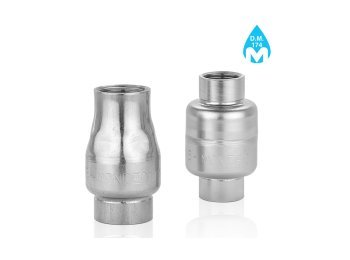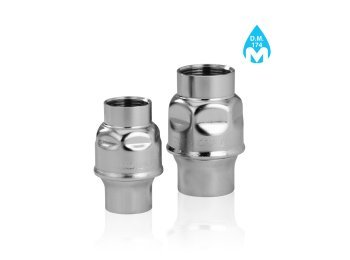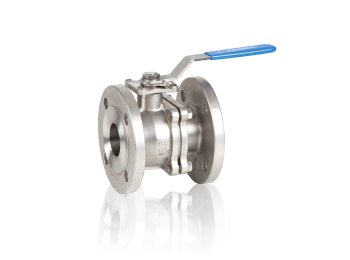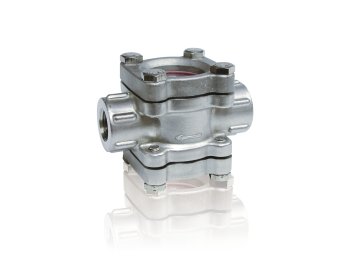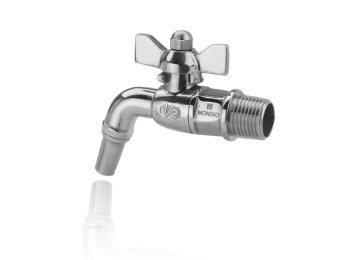AISI 316 stainless steel valves for hydraulic systems in marine environments: resistance, safety and durability.
Marine environments represent one of the most complex challenges for the design and maintenance of hydraulic systems.
Constant humidity, salt spray, sand and continuous exposure to weather conditions require the use of high-performance materials. In this context, AISI 316 steel valves prove to be the most reliable technical solution for water management in coastal areas, ensuring durability, hygiene and operational safety.The critical issues of hydraulic systems in marine environments: a hostile context for standard materials.
Systems installed near the sea must withstand particularly aggressive conditions:
- Salt spray in the air: accelerates corrosion, especially on untreated metal surfaces.
- Constant humidity: promotes condensation and the onset of oxidative processes.
- Temperature fluctuations and UV: can alter the characteristics of plastics and untreated metals.
- Sand and fine particulate: enter closing and regulation mechanisms, causing abrasion and blockages.
These conditions require valves made from corrosion-resistant materials, with low maintenance and compatible with the hygienic requirements of modern civil and recreational systems.
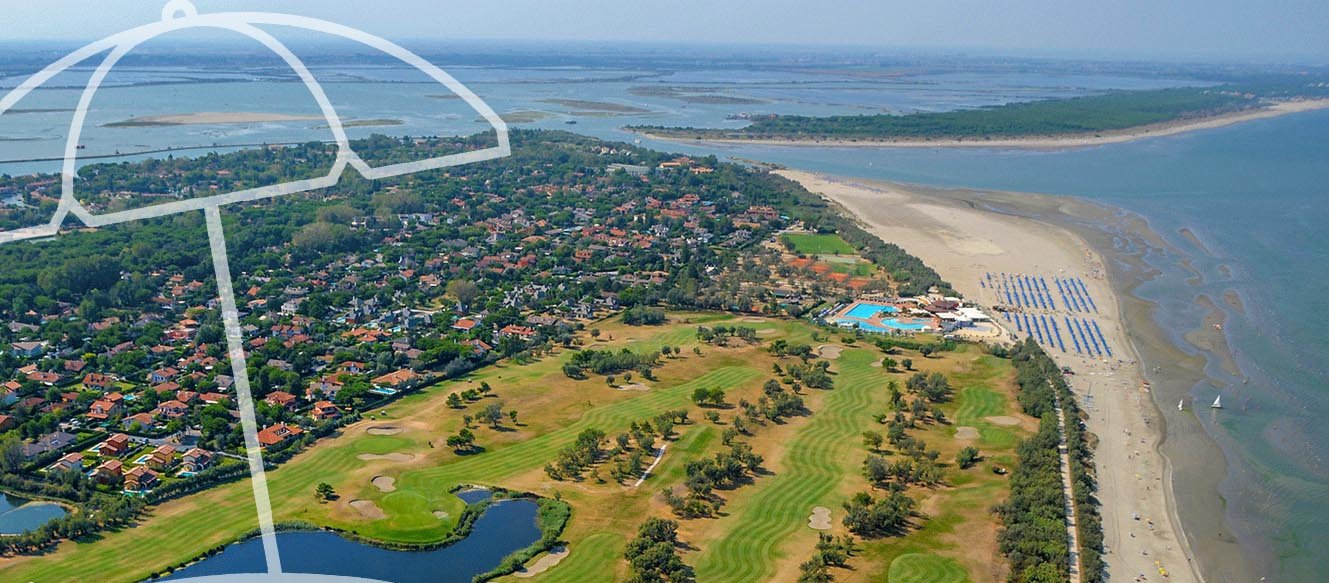
Why AISI 316 stainless steel is the most effective choice.
Corrosion resistance and compatibility with drinking water.
AISI 316 stainless steel alloys are engineered to provide mechanical and chemical resistance even in extreme environments. The chromium, nickel and molybdenum content creates a protective barrier against oxidation, even in the presence of salts and humidity.
Main advantages:
- Excellent resistance to saline corrosion.
- Suitable for contact with drinking water according to European standards.
- High durability even in presence of condensates and pollutants.
- Dimensional stability even with frequent thermal variations.
Reduced maintenance needs.
AISI 316 steel valves have a significantly longer service life than those made of plastic or ferrous materials. This translates into:
- Fewer planned or emergency maintenance interventions.
- Reduction in operational costs in the medium to long term.
- Greater reliability in critical situations, such as hydraulic emergencies or seasonal usage peaks.
The most used hydraulic valves in coastal areas.
AISI 316 stainless steel ball valves.
Ball valves are ideal for quick and secure shut-off of hydraulic lines. In AISI 316 versions they are resistant to marine agents and perfect for:
- Water connections.
- Temporary or mobile discharge lines.
- Firefighting or emergency systems.
Butterfly valves.
Used in large diameter or high flow systems, butterfly valves are often used for:
- Main distribution systems.
- Sewage or waste networks.
- Stormwater collection systems.
The AISI 316 stainless steel versions ensure consistent performances even in harsh environmental conditions.
Check valves.
Essential to prevent backflow in hydraulic systems, non-return valves are particularly suitable for:
- Protection of pumps and tanks.
- Systems in areas subject to pressure variations.
- Systems exposed to tides, artificial channels or low slopes.
Integration with modern hydraulic systems.
Compatibility with automation and remote control.
AISI 316 stainless steel valves can be equipped with electric or pneumatic actuators, sensors and IoT modules. This predisposition makes them ideal for:
- Smart irrigation systems.
- Centralized water management for residences or hospitality structures.
- Remote monitoring of pressure, flow or leaks.
Suitable for solar, rainwater collection and treatment systems.
Thanks to chemical resistance, AISI 316 valves are also suitable for:
- Solar thermal systems with added water.
- Greywater or blackwater treatment systems.
- Rainwater harvesting and recycling plants.
Long-term benefits for facilities in maritime zones.
Durable and sustainable investment.
Adopting AISI 316 steel valves entails a higher initial investment, but is largely compensated by:
- Long operational life (up to 30 years and beyond).
- Low failure and replacement rates.
- Reduced environmental impact compared to more perishable materials.
Greater safety for civil and residential systems.
The reliability of AISI 316 steel in systems of:
- Sanitary water distribution.
- Irrigation of green areas and condominium gardens.
- Fire protection and emergency pumping.
makes this material a strategic choice for any coastal facility aiming for quality and safety.
AISI 316 stainless steel as the standard for hydraulics in marine areas.
In coastal environments, the choice of materials is decisive to ensure efficient, safe and durable systems. AISI 316 stainless steel valves, with their chemical and mechanical characteristics, stand out as the ideal solution for any type of hydraulic infrastructure near the sea.
Relying on certified, corrosion-resistant components compatible with the most modern technologies is not only a technical choice: it is a concrete step toward sustainable and reliable water resources management.




















